AI in Africa healthcare falls short of potential
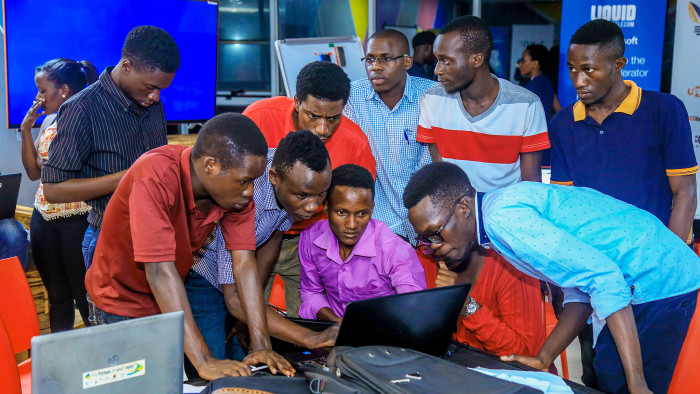
Roula Khalaf, Editor of the FT, selects her favourite stories in this weekly newsletter.
Two days after the World Health Organization declared coronavirus a pandemic on March 11, the South African data science competition platform Zindi set a challenge. Budding data scientists were asked to come up with a model to predict the spread of Covid-19 using open-source data. A fortnight later, more than 500 hopefuls had entered, vying for the $5,000 prize. Entries will be judged in June against the spread of the disease measured in global deaths.
Celina Lee, who co-founded Zindi in Cape Town 18 months ago, describes the platform as a way of showcasing budding African data scientists and matching them with companies that have data but lack the expertise to exploit it.
Winners of the regular competitions — which include topics such as classifying fields by crop type using satellite imagery in South Africa, or forecasting flood patterns in Malawi — are sometimes hired directly by the company or institution sponsoring the challenge. Others simply compete for the prize money or, more importantly, says Lee, the opportunity to improve their skills through tackling real-world problems. More than 12,000 aspiring data scientists have already registered.
The need for companies such as Zindi, essentially a matchmaker between problems and problem solvers, highlights a significant obstacle to the practical use of artificial intelligence in Africa. Whatever one thinks about the idea of clever computers patching up infrastructure shortfalls — whether in road networks, administrative capacity or healthcare — the real-world use of AI on the continent is falling well short of its potential.
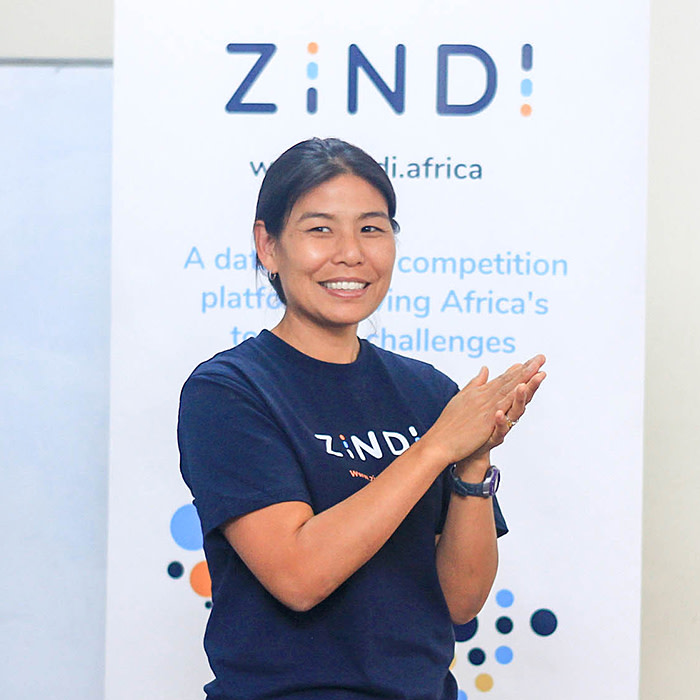
“Africa has a lot of talent, but very few systems that make them useful,” says Bright Simons, a Ghanaian social innovator and machine learning expert, who says Zindi fills an important gap. “The most talented people rarely get their hands on interesting problems. People need problems to keep their skills sharp.”
In much of the continent, the biggest challenge is what Simons describes as the integration of complex data sets with the algorithms that can interpret them. “AI can do this and that,” he says. “But 90 per cent of these are lab problems. For real-world problems, you need to bring a lot of data together, very few of which are controlled by single entities.”
Aubrey Hruby, a US investor in African start-ups, recognises the potential of AI systems to solve some health problems in Africa but wonders whether too much faith is being placed in the concept of leapfrogging.
“The next wave is centred around telemedicine, the portability of medical records and diagnostics,” she says. “But can those things really solve the fact that there are only so many [hospital] beds per population? A lot of these things are just one part of the health system.”
Zindi’s Lee believes that, given backing, technologies such as machine learning can help expand the reach and efficacy of healthcare resources. She describes a model, which resulted from another Zindi competition, that successfully predicted depression risk in rural Kenya based on answers to a questionnaire.
Questions might be as simple as where someone lives or what their house is made of. A computer can then analyse these answers for patterns that might elude a human interrogator. Once patients are identified, the problem becomes one of accessing effective treatment.
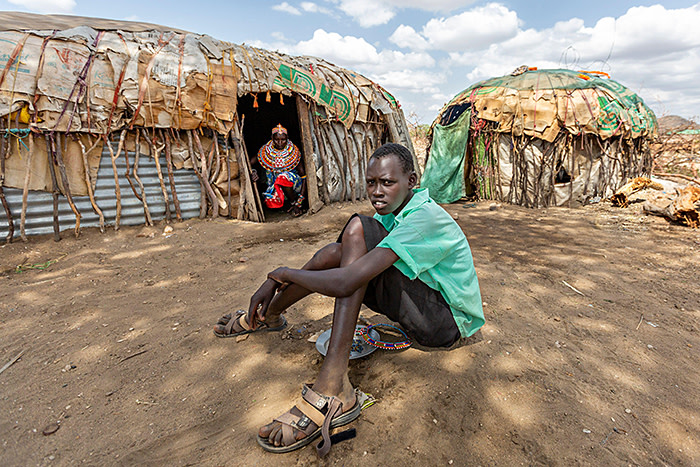
Another model developed by a Zindi-registered data scientist had a more immediate impact. It helped a child protection helpline operating in Nairobi, Kenya’s capital, to set efficient staffing rotas by predicting when most calls would come in. “In the African context, resources are limited. Any efficiency you can introduce for delivering health services helps,” says Lee. “It can change people’s lives and it can save people’s lives.”
Precious Lunga, a Zimbabwean neuroscientist also convinced that AI can make a difference, founded Baobab Circle, which uses algorithms and behavioural science to help patients monitor chronic conditions. Once signed up to the app, patients enter regular dialogue with Afya Pap, a “digital health companion” (or sophisticated chatbot) that dispenses medical advice and encourages healthier behaviour.
“Our initial focus has been on the self-management aspect of diabetes and hypertension where we monitor data to help the user manage their condition,” says Lunga, whose company has 50,000 registered users in Kenya, Uganda, Zambia and Zimbabwe.
For hypertension, patients take their own measurements with a blood-pressure monitor, which they can use for a small fee in pharmacies. Patients log the results on the app, which can be read by doctors if users grant access. “You can see between doctor visits what’s been going on,” says Lunga. “You can see patterns, whether the patient is doing well or needs an intervention.”
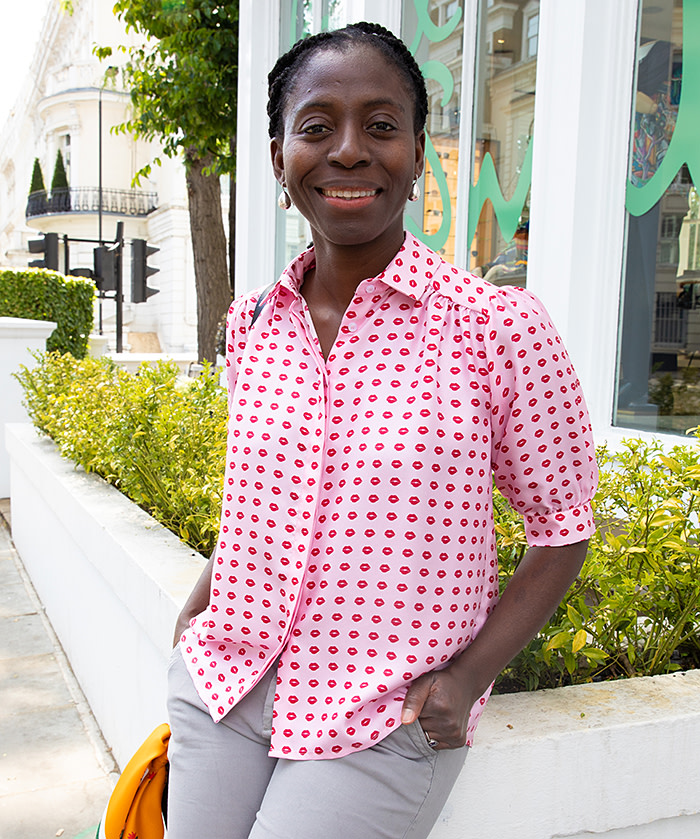
Since the outbreak of coronavirus, the app has been adapted. “With Covid-19 it is becoming a trusted source of information,” says Lunga. “There’s a lot of fake news being passed around about Covid-19 such as WhatsApp messages that say heat will damage coronavirus. That’s wrong and potentially dangerous. We have repurposed the app to deliver health advice on prevention — and localise it, with messages such as ‘Avoid the market’.”
Long before coronavirus struck, Mahamudu Bawumia, Ghana’s vice-president, highlighted the value of digital information, from property addresses to hospital records. Although Ghana’s digitalisation drive — centred on national ID cards and government services — is primarily aimed at improving administrative efficiency and eliminating corruption, the government recognises the implications for health delivery.
Emmanuel Gyimah-Boadi, former director of Ghana’s Center for Democratic Development, welcomes the digital push, saying that governments cannot begin to solve people’s problems if they do not know who they are and where and how they live. The national ID system — a controversial concept in parts of the continent — is for him “the beginning of citizenship”, although implementation has been slow.
Darlington Ahiale Akogo, founder of minoHealth AI Labs, a Ghanaian data science start-up, says the country’s big hospitals have conducted tens of thousands of medical imaging tests. “But we don’t have any records of that,” he says. Akogo has developed a system that can detect various pathologies from chest X-rays, including pneumonia and fibrosis. “The AI system performs as well as the best radiologist,” he claims, adding that this is invaluable in a country with fewer than 40 radiologists. “How can we use technology like AI and big data to provide fully democratised healthcare that otherwise wouldn’t be available?”
Computer power can also be used for research, he says. He is using AI to try to determine why children from Kintampo, a town in the Bono East region, are less susceptible to malaria than those from Accra. “We are using AI to identify the key things that give people high immunity,” he says.
The hunger for data that such projects generates is tricky in a continent that has not yet grasped the regulatory implications of accessing personal information.
The Wellcome Sanger Institute, a UK genome research centre, was recently accused by whistleblowers of commercialising a gene chip without the consent of African people who donated DNA. Sanger denies the allegations, pointing to two separate investigations that found that “no wrongdoing took place”.
Akogo says the use of data must be carefully evaluated from both a legal and ethical perspective. “What is the right framework for collecting data and using it to improve diagnosis? It’s the same problem Facebook and Google are having now. The worst thing we can do is recreate with healthcare that kind of problem. Imagine Cambridge Analytica, but with healthcare,” he says, referring to the former UK political consulting firm that collapsed after being accused of misusing personal data.
Akogo says regulators will also have to develop rules on what he calls “explainability”. “Should a system have to explain why it thinks you have pneumonia?” he asks. “From a regulatory point of view, it is perfectly reasonable to expect a system to explain itself, but from a technology point of view that might not even mean anything,” he says. “If a patient is diagnosed by an AI system, who is responsible legally?”
Yet another ethical dilemma for Africa to grapple with, says Zindi’s Lee, is uneven access to broadband and to computer power, which puts many African data scientists at a disadvantage, particularly if they live outside big cities. “Even a typical university student in Nairobi would struggle with some of the larger data sets,” she says, adding that some solutions can take up to 12 hours to run on typical computers.
Zindi has recently partnered with Microsoft to allow participants to perform their computations in the cloud. “You should be able to be anywhere or anyone and be able to throw your hat in the ring,” she says.
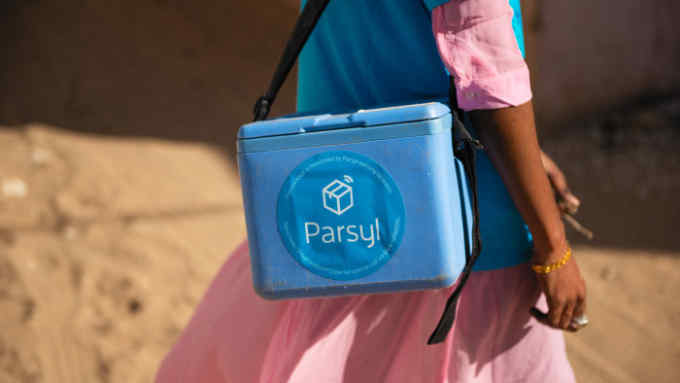
Comments